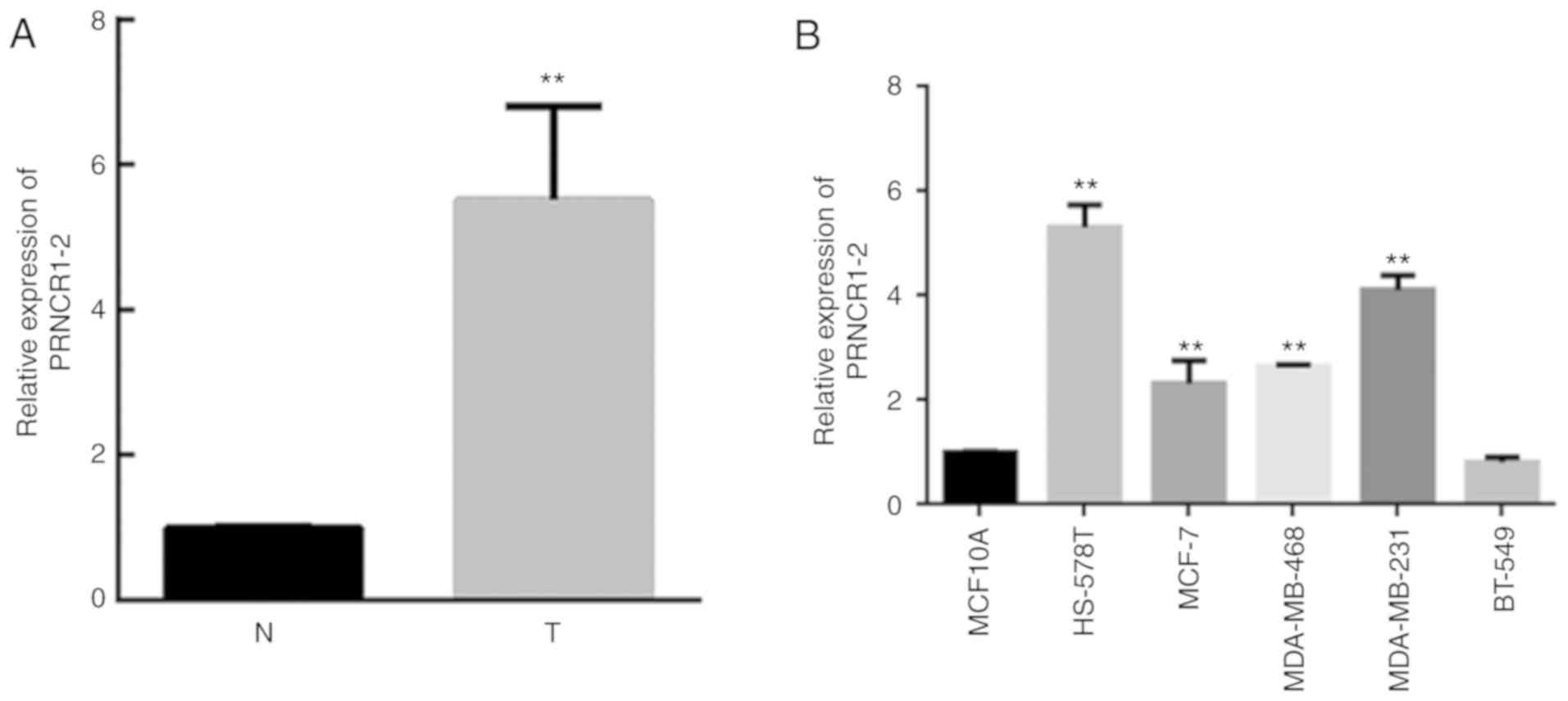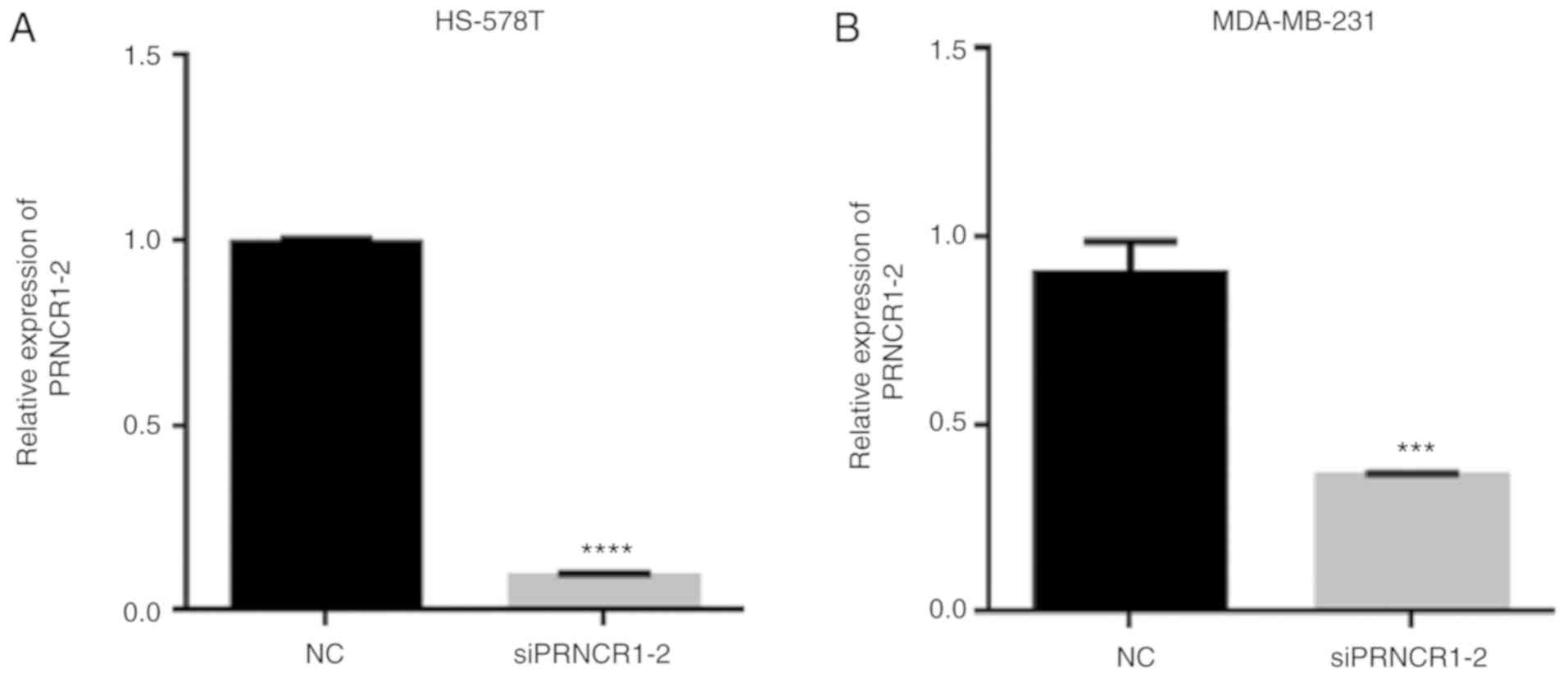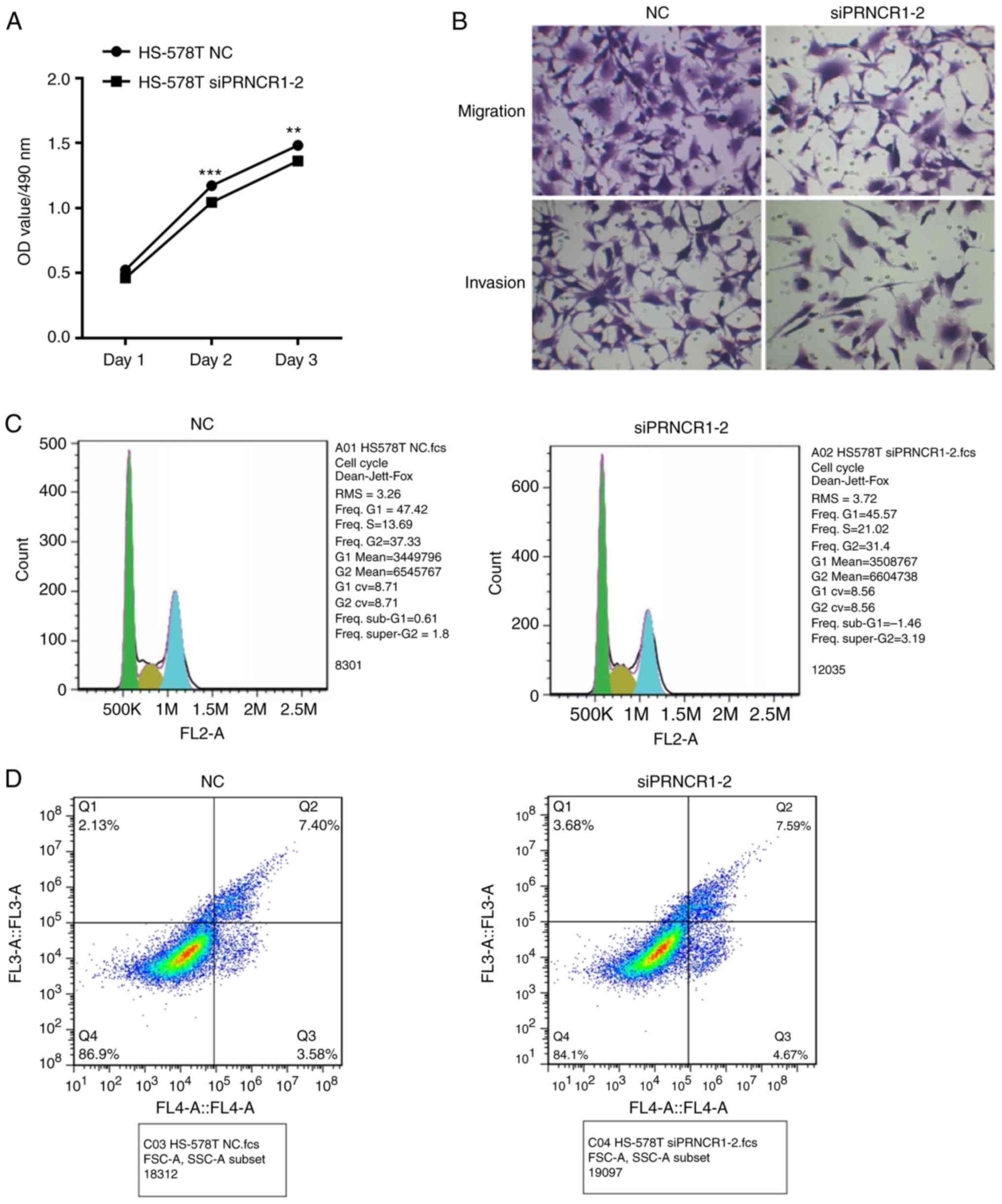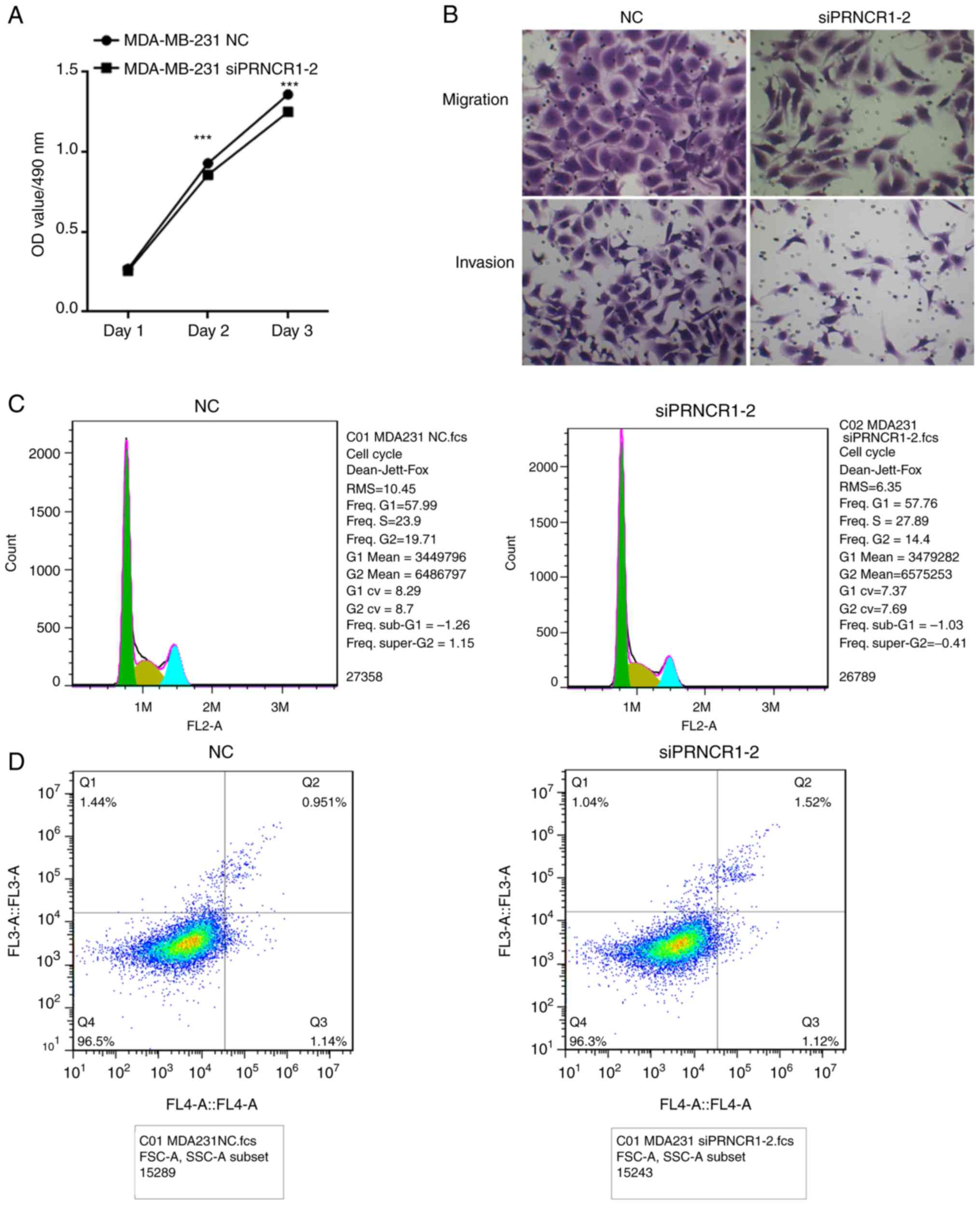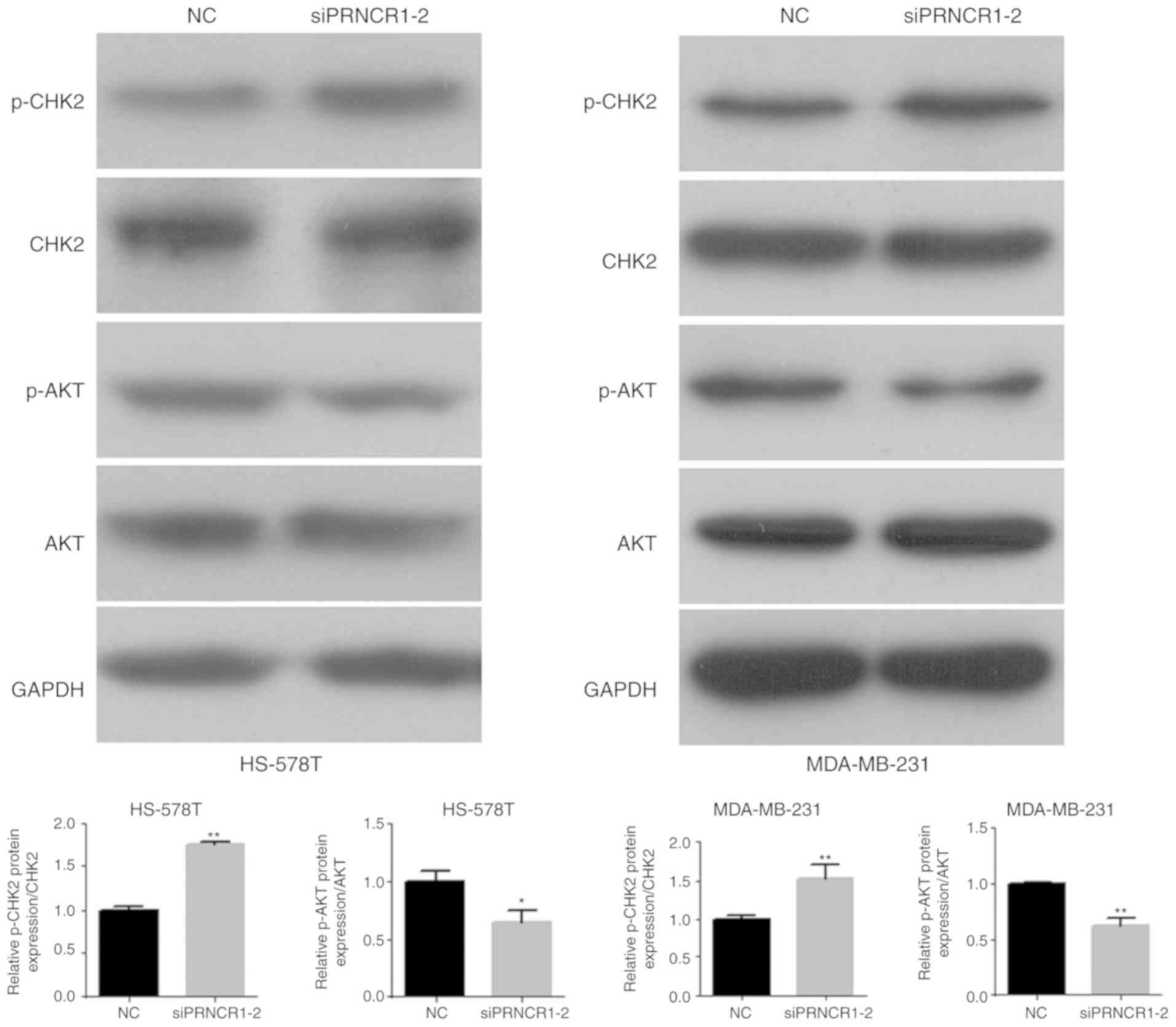|
1
|
Siegel RL, Miller KD and Jemal A: Cancer
statistics, 2018. CA Cancer J Clin. 68:7–30. 2018. View Article : Google Scholar : PubMed/NCBI
|
|
2
|
Desantis C, Ma J, Bryan L and Jemal A:
Breast cancer statistics, 2013. CA Cancer J Clin. 64:52–62. 2014.
View Article : Google Scholar : PubMed/NCBI
|
|
3
|
Bombonati A and Sgroi DC: The molecular
pathology of breast cancer progression. J Pathol. 223:307–317.
2011. View Article : Google Scholar : PubMed/NCBI
|
|
4
|
Lopez-Garcia MA, Geyer FC, Lacroix-Triki
M, Marchió C and Reis-Filho JS: Breast cancer precursors revisited:
Molecular features and progression pathways. Histopathology.
57:171–192. 2010. View Article : Google Scholar : PubMed/NCBI
|
|
5
|
Byler S, Goldgar S, Heerboth S, Leary M,
Housman G, Moulton K and Sarkar S: Genetic and epigenetic aspects
of breast cancer progression and therapy. Anticancer Res.
34:1071–1077. 2014.PubMed/NCBI
|
|
6
|
Welch DR and Wei LL: Genetic and
epigenetic regulation of human breast cancer progression and
metastasis. Endocrine-Related Cancer. 5:155–197. 1998. View Article : Google Scholar
|
|
7
|
Mercer TR and Mattick JS: Structure and
function of long noncoding RNAs in epigenetic regulation. Nat
Struct Mol Biol. 20:300–307. 2013. View Article : Google Scholar : PubMed/NCBI
|
|
8
|
Lo PK, Wolfson B, Zhou X, Duru N,
Gernapudi R and Zhou Q: Noncoding RNAs in breast cancer. Brief
Funct Genomics. 15:200–221. 2016. View Article : Google Scholar : PubMed/NCBI
|
|
9
|
Cao J: The functional role of long
non-coding RNAs and epigenetics. Biol Proced Online. 16:112014.
View Article : Google Scholar : PubMed/NCBI
|
|
10
|
Lin C and Yang L: Long noncoding RNA in
cancer: Wiring signaling circuitry. Trends Cell Biol. 28:287–301.
2018. View Article : Google Scholar : PubMed/NCBI
|
|
11
|
Slaby O, Laga R and Sedlacek O:
Therapeutic targeting of non-coding RNAs in cancer. Biochem J.
474:4219–4251. 2017. View Article : Google Scholar : PubMed/NCBI
|
|
12
|
Huarte M: The emerging role of lncRNAs in
cancer. Nature Medicine. 21:1253–1261. 2015. View Article : Google Scholar : PubMed/NCBI
|
|
13
|
Sørensen KP, Thomassen M, Tan Q, Bak M,
Cold S, Burton M, Larsen MJ and Kruse TA: Long non-coding RNA
HOTAIR is an independent prognostic marker of metastasis in
estrogen receptor-positive primary breast cancer. Breast Cancer Res
Treat. 142:529–536. 2013. View Article : Google Scholar : PubMed/NCBI
|
|
14
|
Huang J, Zhou N, Watabe K, Lu Z, Wu F, Xu
M and Mo YY: Long non-coding RNA UCA1 promotes breast tumor growth
by suppression of p27 (Kip1). Cell Death Dis. 5:e10082014.
View Article : Google Scholar : PubMed/NCBI
|
|
15
|
Prensner JR, Sahu A, Iyer MK, Malik R,
Chandler B, Asangani IA, Poliakov A, Vergara IA, Alshalalfa M,
Jenkins RB, et al: The lncRNAs PCGEM1 and PRNCR1 are not implicated
in castration resistant prostate cancer. Oncotarget. 5:1434–1438.
2014. View Article : Google Scholar : PubMed/NCBI
|
|
16
|
Yang L, Qiu M, Xu Y, Wang J, Zheng Y, Li
M, Xu L and Yin R: Upregulation of long non-coding RNA PRNCR1 in
colorectal cancer promotes cell proliferation and cell cycle
progression. Oncol Rep. 35:318–324. 2016. View Article : Google Scholar : PubMed/NCBI
|
|
17
|
Sattarifard H, Hashemi M, Hassanzarei S,
Narouie B and Bahari G: Association between genetic polymorphisms
of long non-coding RNA PRNCR1 and prostate cancer risk in a sample
of the Iranian population. Mol Clin Oncol. 7:1152–1158.
2017.PubMed/NCBI
|
|
18
|
Livak KJ and Schmittgen TD: Analysis of
relative gene expression data using real-time quantitative PCR and
the 2(-Delta Delta C(T)) method. Methods. 25:402–408. 2001.
View Article : Google Scholar : PubMed/NCBI
|
|
19
|
Esteller M: Non-coding RNAs in human
disease. Nature Reviews Genetics. 12:861–874. 2011. View Article : Google Scholar : PubMed/NCBI
|
|
20
|
Jing H, Markowitz GJ and Wang X: Noncoding
RNAs regulating cancer signaling network. Adv Exp Med Biol.
927:297–315. 2016. View Article : Google Scholar : PubMed/NCBI
|
|
21
|
Sun H, Wang G, Peng Y, Zeng Y, Zhu QN, Li
TL, Cai JQ, Zhou HH and Zhu YS: H19 lncRNA mediates
17β-estradiol-induced cell proliferation in MCF-7 breast cancer
cells. Oncol Rep. 33:3045–3052. 2015. View Article : Google Scholar : PubMed/NCBI
|
|
22
|
Zhang K, Luo Z, Zhang Y, Zhang L, Wu L,
Liu L, Yang J, Song X and Liu J: Circulating lncRNA H19 in plasma
as a novel biomarker for breast cancer. Cancer Biomark. 17:187–194.
2016. View Article : Google Scholar : PubMed/NCBI
|
|
23
|
Zhang K, Zhang Y, Luo Z, Lichun WU, Zhang
L and Liu J: Diagnostic value of urinary lncRNA H19 for breast
cancer. Shandong Med J. 56:42–44. 2016.
|
|
24
|
Lin A, Hu Q, Li C, Xing Z, Ma G, Wang C,
Li J, Ye Y, Yao J, Liang K, et al: The LINK-AlncRNA interacts with
PtdIns(3,4,5)P3 to hyperactivate AKT and confer
resistance to AKT inhibitors. Nature Cell Biol. 19:238–251. 2017.
View Article : Google Scholar : PubMed/NCBI
|
|
25
|
Wang S, Liang K, Hu Q, Li P, Song J, Yang
Y, Yao J, Mangala LS, Li C, Yang W, et al: JAK2-binding long
noncoding RNA promotes breast cancer brain metastasis. J Clin
Invest. 127:4498–4515. 2017. View
Article : Google Scholar : PubMed/NCBI
|
|
26
|
Hu ZY, Wang XY, Guo WB, Xie LY, Huang YQ,
Liu YP, Xiao LW, Li SN, Zhu HF, Li ZG and Kan H: Long non-coding
RNA MALAT1 increases AKAP-9 expression by promoting SRPK1-catalyzed
SRSF1 phosphorylation in colorectal cancer cells. Oncotarget.
7:11733–11743. 2016.PubMed/NCBI
|
|
27
|
Ingvarsson S, Sigbjornsdottir BI, Chen H,
Hafsteinsdottir SH, Ragnarsson G, Barkardottir RB, Arason A,
Egilsson V and Bergthorsson JT: Mutation analysis of the CHK2 gene
in breast carcinoma and other cancers. Breast Cancer Res. 4:1–6.
2002. View
Article : Google Scholar : PubMed/NCBI
|
|
28
|
Sullivan A, Yuille M, Repellin C, Reddy A,
Reelfs O, Bell A, Dunne B, Gusterson BA, Osin P, Farrell PJ, et al:
Concomitant inactivation of p53 and Chk2 in breast cancer.
Oncogene. 21:1316–1324. 2002. View Article : Google Scholar : PubMed/NCBI
|
|
29
|
Xu X, Tsvetkov LM and Stern DF: Chk2
activation and phosphorylation-dependent oligomerization. Mol Cell
Biol. 22:4419–4432. 2002. View Article : Google Scholar : PubMed/NCBI
|
|
30
|
Hartmann W, Digonsöntgerath B, Koch A,
Waha A, Endl E, Dani I, Denkhaus D, Goodyer CG, Sörensen N,
Wiestler OD and Pietsch T: Phosphatidylinositol 3′-kinase/AKT
signaling is activated in medulloblastoma cell proliferation and is
associated with reduced expression of PTEN. Clin Cancer Res.
12:3019–3027. 2006. View Article : Google Scholar : PubMed/NCBI
|
|
31
|
Kim D, Kim S, Koh H, Yoon SO, Chung AS,
Cho KS and Chung J: Akt/PKB promotes cancer cell invasion via
increased motility and metalloproteinase production. FASEB J.
15:1953–1962. 2001. View Article : Google Scholar : PubMed/NCBI
|
|
32
|
Chang F, Lee JT, Navolanic PM, Steelman
LS, Shelton JG, Blalock WL, Franklin RA and McCubrey JA:
Involvement of PI3K/Akt pathway in cell cycle progression,
apoptosis, and neoplastic transformation: A target for cancer
chemotherapy. Leukemia. 17:590–603. 2003. View Article : Google Scholar : PubMed/NCBI
|
|
33
|
Jacinto E, Facchinetti V, Liu D, Soto N,
Wei S, Jung SY, Huang Q, Qin J and Su B: SIN1/MIP1 maintains
rictor-mTOR complex integrity and regulates Akt phosphorylation and
substrate specificity. Cell. 127:125–137. 2006. View Article : Google Scholar : PubMed/NCBI
|















